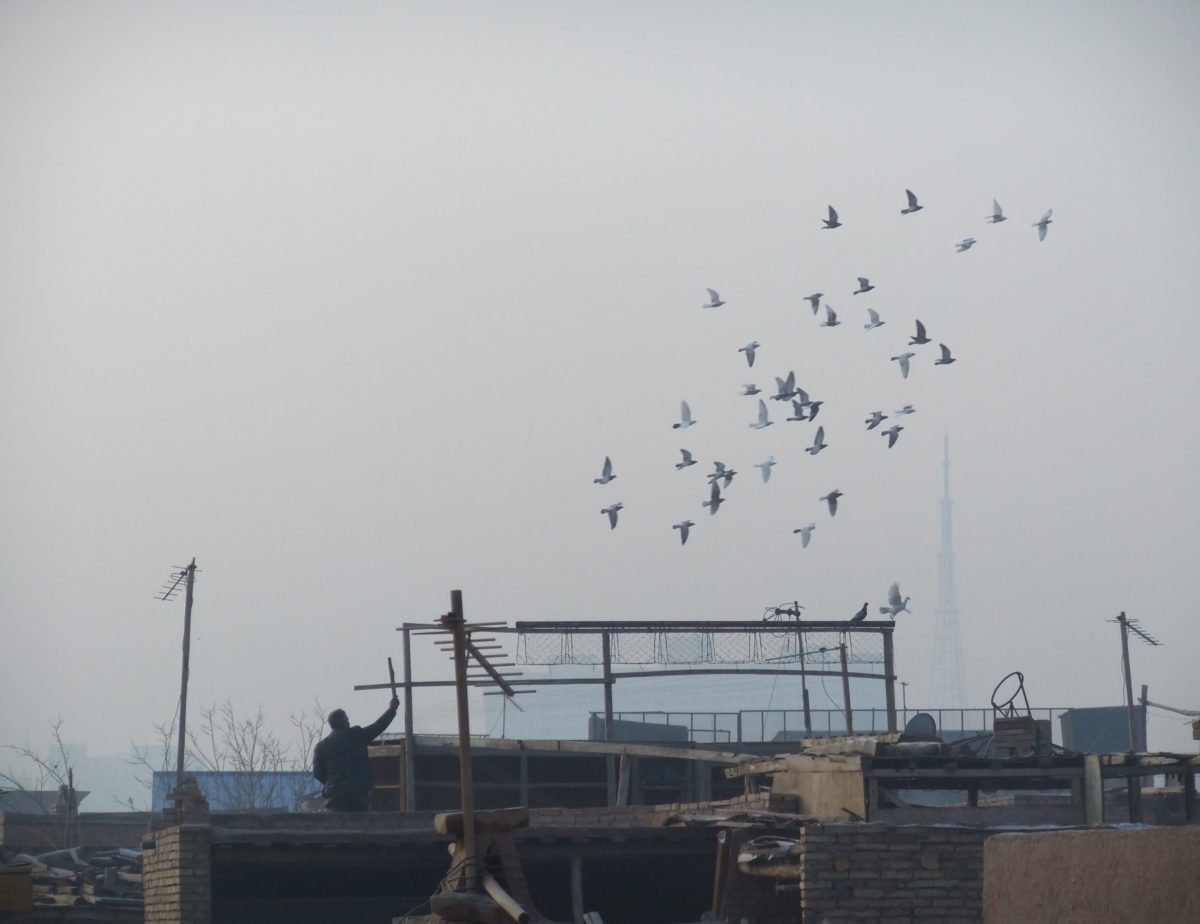A search engine for disappeared Uyghurs
Uyghur exiles searching for loved ones are closer to answers thanks to a new internet search tool with access to more than 700,000 classified police records leaked from China last year.

There are few ways that Uyghurs cut off from their homeland can discover the fate of their family members and friends. Uyghurs in exile consistently report that they are unable to contact anyone at home, or that their contacts in China will get into trouble if they receive phone calls or messages from abroad.
Almost all lines of communication were cut in 2016 following the appointment of Chén Quánguó 陈全国 as top leader and an acceleration of Beijing’s “War on Terror” on its westernmost flank. Uyghurs who escaped to Muslim countries and even to Western countries were labeled terrorists; family members left at home had no option but to delete them from social media and in some cases disown them completely.
The rumor mill has been the refugees’ main hope for getting information, but many report it has taken one or two years for news to reach them of the imprisonment or death of parents or relatives. Talk in exile communities is of sleepless nights, survivors’ guilt, and feelings of filial failure.
The bittersweet task of unearthing the truth is now easier thanks to researcher Adrian Zenz and a team from the Victims of Communism Memorial Foundation. Using a cache of leaked, classified police documents they published after receiving them in May 2022 — the Xinjiang Police Files — they have launched a search engine that finds names and Chinese ID numbers in 730,000 police records.
The results include names, photos, reasons for detention, whether they are currently detained or not and where, and health status. Some people are reported in the data to have died in custody.
A human face on the mass incarceration campaign
The information is from different sources, which are themselves not always complete, so entries are inconsistent, and not everyone in the database is a victim. Yet file after file of bedraggled, defeated, and frightened individuals puts a human face to the numbers incarcerated in so-called “Vocational Training Centers” scattered throughout Xinjiang.
Elderly weathered farmers, middle-aged housewives, young girls, youths, and even children are among the hundreds of thousands of ordinary people caught up in the incarceration campaign that began in 2016 in the name of counterterrorism. Older women were rounded up for “crimes” such as wearing headscarves — a normal Central Asian cultural marker — academics because of their bookshelves of Uyghur poetry and musings by a growing list of banned authors, and young men and women for studying Islam in Egypt’s prestigious Al Azhar University. Along with Uyghurs, the authorities have detained Chinese citizens who are Kazakh and Kyrgyz, and possibly other ethnic Turkic Muslims.
Multiple reports from eyewitnesses and journalists, and data from leaks from government databases have documented large numbers of inmates who have been forced to learn the Chinese language, subject to political indoctrination, and forced to confess to various trumped-up crimes. Many have been tortured, pumped with unknown drugs, sterilized, raped, and brainwashed. Some have not made it out alive.
Other ways to search for missing people
There are three other databases of detained Uyghurs and other Turkic people:
- The Xinjiang Victims Database and the Uyghur Transitional Justice Database have the minutiae of thousands of disappeared people, which are updated daily as information comes to light through family members, friends, and colleagues. These organizations also offer support to families to keep detained individuals in the public eye.
- Uyghur Hjelp, also known as Uyghuryar and based in Norway, also offers support to Uyghurs in the diaspora who are experiencing difficulties, and promotes Uyghur culture and language.
The Xinjiang Victims Database has also just released a 404-page report detailing descriptions and photos of every detention facility, complete with addresses, GPS coordinates, and links to procurement data, and to information about documented prisoners and staffing lists. The database was founded as a labor of love by Russian-American researcher Gene Bunin.
How exiled Uyghurs are using the search engine
Jevlan Shermehmet, a Uyghur activist in Istanbul, told The China Project that he found both his parents and his younger brother in the records. Beside their names it had been noted that they had visited “sensitive places.”
Abduweli Ayup, a Norway-based Uyghur educator and writer, discovered a string of family members on the website. He told The China Project that his younger sister, Sajida, now 44, had been sentenced to 11 years’ imprisonment for being a “two-faced official.” She had been a high school geography teacher in the small town of Konasheher. His older brother, Erkin, now 59, had been sentenced to 14 years, with no reason given. Cousins, a nephew, and friends had all fallen foul of the law.
Abduweli Ayup himself spent 15 months in a Chinese prison starting in 2013, for ostensibly raising funds for Uyghur-language schools he was running with friends. He described torture at the hands of his captors and fellow prisoners in a witness statement for London’s Uyghur Tribunal, in 2021. But he says that despite a vague feeling that the worst had happened to his family members, he had continued hoping for the best.
After seeing them in the search engine, he said, “The reality is very hard to accept.” Discovering dates, times, places, and sentences were a shock. Fifteen months in prison had been hard enough for him; he wondered how they would bear incarceration terms of up to 20 years.
Friends around the world making similar discoveries have been pleading with Abduweli Ayup to “do something.” As he is known for his activism in the Uyghur community, many are contacting him, hoping he can find a way to get their family members out.
“This is the most painful part for me,” he said:
None of them were ready to see relatives sentenced to such lengthy prison terms. Some who had been living in hope for their families have completely given up in despair…Seeing their pain and not being able to do anything to ease it is so hard for me.
The news is sometimes even worse. Abduweli Ayup’s niece Mihray Erkin had been coerced into returning from doctoral studies in Japan in 2019 and died a year later in detention. She had been described as a “fugitive,” and a warrant was issued for her arrest at customs the moment she arrived in the provincial capital, Ürümqi.
The new search engine and the other online tools available do not always have the information exiled Uyghurs are looking for. Aygul, who arrived in Istanbul six years ago, has had no contact with her family since all contact with the outside world was severed in 2016. She is consumed by the fate of her father, whom she heard might be in prison. Speaking to The China Project, she says she knows she is vulnerable to gossip and clutches at every straw proffered. The photos in the Xinjiang Police Files published last year gave her hope, but they eventually revealed nothing, and the search engine has turned up little new.
Meriem, now exiled to the U.K., has a sister she worries about every day. She told The China Project that she preferred not knowing. “I can at least keep hope alive,” she said. “The thought of hearing bad news is too terrible to imagine. I would rather just not know.”
What’s next?
Speaking to The China Project, Zenz said the purpose of the search tool was to make the data available, “given how desperate the Uyghurs are for any piece of information about their loved ones.”
But aside from the information the Xinjiang Police Files and new search engine can provide, activists are hoping for concrete follow-up. Andrew Bremberg, the president of the Victims of Communism Memorial Foundation, which hosts the data, said he hoped the search tool would “empower victims and their families to tell their stories, seek justice, and hopefully galvanize international action to hold Beijing accountable…put pressure on Beijing, and hopefully reduce the abuses against their loved ones,” he said.
The Victims of Communism Memorial Foundation has also released a United Nations Complaint Submission Portal that enables survivors and victims’ families to file complaints to the UN.






